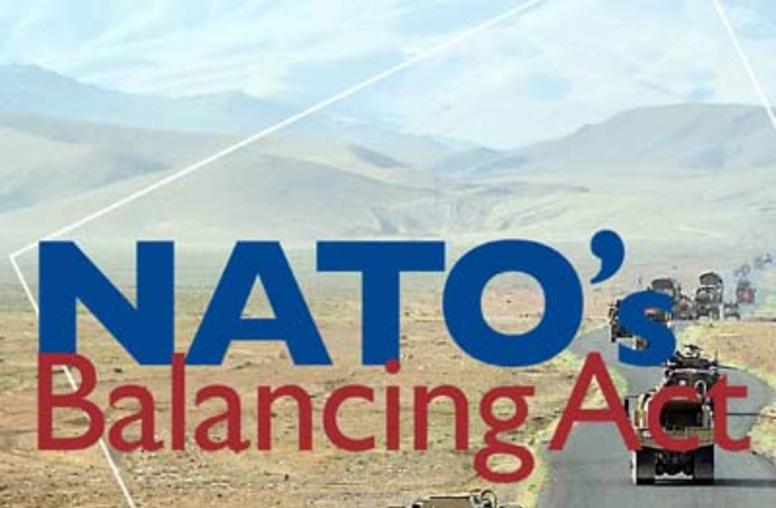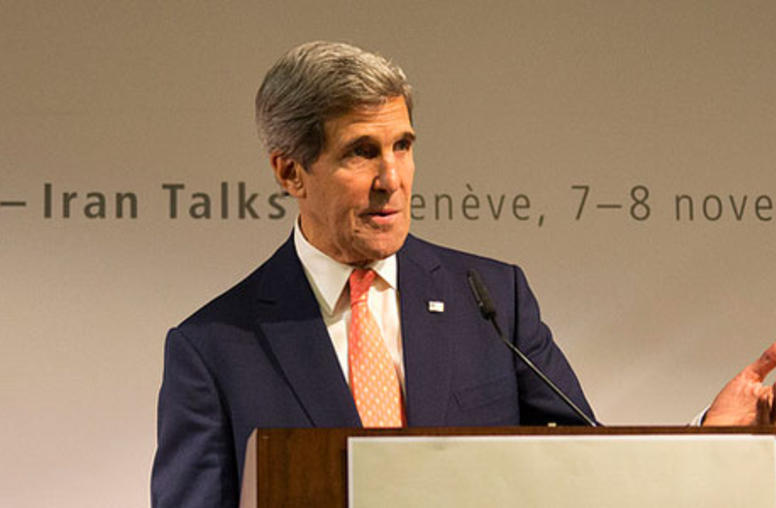Publications
Articles, publications, books, tools and multimedia features from the U.S. Institute of Peace provide the latest news, analysis, research findings, practitioner guides and reports, all related to the conflict zones and issues that are at the center of the Institute’s work to prevent and reduce violent conflict.

Heather Ashby on How African Countries Have Reacted to Russia’s War in Ukraine
As Russia’s war in Ukraine unfolds, USIP’s Heather Ashby says the United States should “keep an eye on Russia’s security partnerships with [African] countries” and pay close attention to “whether the rise in fuel prices or food scarcity trigger any type of unrest” on the continent.

NATO’s Balancing Act
NATO's Balancing Act evaluates the alliance’s performance of its three core tasks—collective defense, crisis management, and cooperative security—and reviews its members’ efforts to achieve the right balance among them. Yost considers NATO's role in the evolving global security environment and its implications for collective defense and crisis management in the Balkans, Afghanistan, Africa, Libya, and elsewhere.

Iran Agreement Sets Agenda for Talks Toward Larger Pact
The agreement with Iran penned in Geneva is a significant step because it creates an agenda for cooperative and reciprocal action between Iran and its powerful foes that has not existed before. Without such a deal – even one as short-lived as this six-month framework – no larger agreement is really possible.

Former USIP Fellows Help Foster Basque Peace Breakthrough
When they met during their fellowships at the United States Institute of Peace (USIP) in 2005, a lasting friendship was born. But as Pierre Hazan, a Swiss political scientist and former journalist, got to know Gorka Espiau Idoiaga, a peace activist from the Basque country of Spain, they had no idea that their friendship would bring them back together years later to help foster a breakthrough for peace in Western Europe’s last guerrilla conflict.
On the Issues: Iran and P5+1 Talks
USIP expert Dan Brumberg previews the upcoming talks with Iran and provides background on the current situation.
Faint Progress in Geneva?
Daniel Brumberg, Senior Adviser at USIP's Center for Conflict Analysis and Prevention, offers analysis on the "Iran-P5+1" talks held in Geneva, Switzerland on December 6-7, 2010.
USIP Book Launch Explores Iran's Seriousness
After 30 years of estrangement, the Obama administration is now engaged with Iran in hopes of a deal to ensure Iran’s nuclear energy program is not subverted to make nuclear weapons. On December 1, 2010, Iran experts explored important trends inside Iran and in its dealings with the outside world at the U.S. Institute of Peace’s launch of “The Iran Primer: Power, Politics and U.S. Policy.”

American Negotiating Behavior
Informed by discussions and interviews with more than fifty seasoned foreign and American negotiators, this landmark study offers a rich and detailed portrait of the negotiating practices of American officials. Including contributions by eleven international experts, I assesses the multiple influences--cultural, institutional, historical, and political--that shape how American policymakers and diplomats approach negotiations with foreign counterparts and highlights behavioral patterns that tr...
Congressional Commission on the Strategic Posture of the United States
The bipartisan commission, facilitated by USIP from 2008-2009, was tasked by Congress to "examine and make recommendations with respect to the long-term strategic posture of the United States." The Commission issued its final report to Congress on May 6, 2009.